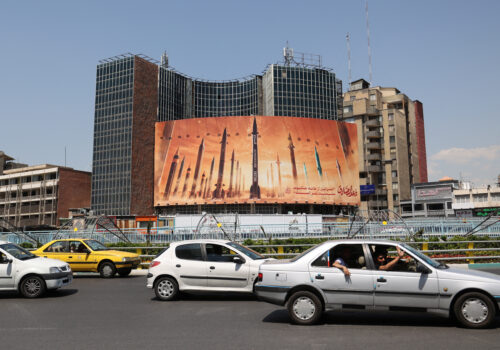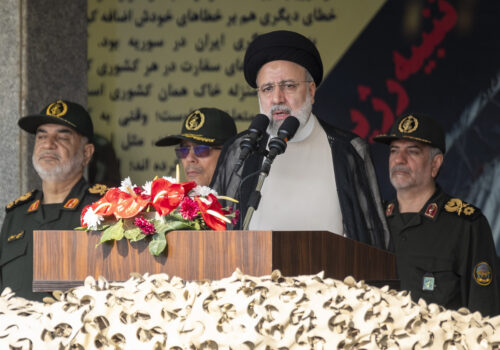Why strategy is central to the Biden-Netanyahu dispute
At the heart of the Biden administration’s growing frustration with Israeli Prime Minister Benjamin Netanyahu is what the White House considers his failure to articulate and execute a strategy that will make Israel more secure, while engaging in tactics that are making it less so.
Two individuals familiar with the administration’s thinking recently spoke to me on condition of anonymity and summed up the situation. US President Joe Biden, the first individual explained, believes that the Israeli leader is “confusing tactics with strategy in a manner that is neither sustainable nor supportable.”
“What’s the end game?” asked the second individual. “What’s the pathway to stability?” Netanyahu has, the individual said, failed to answer these questions in a way that persuades the Biden administration, which has prompted the US president to send a stronger and unmistakable message.
That, in the end, resulted in the most serious US-Israeli dispute in a generation: Biden’s decision to pause a shipment of 3,500 bombs to Israel and his vow to block other offensive arms if Israeli forces mount a full-scale ground invasion of Rafah.
The administration’s criticism is that Netanyahu, at the expense of strategy, is focusing entirely on tactics. Those tactics include freeing hostages, which he’s done with only partial success, and killing Hamas fighters and leaders, which Netanyahu has done in a manner that has increased international opposition and taken unnecessary casualties, while leaving Hamas’s top leadership intact.
Biden’s rift with the Israeli leader is particularly dramatic, as it was the US president who flew to Israel in a courageous and dramatic demonstration of support after Hamas’s terrorist attacks on October 7, 2023. “I come to Israel with a single message,” he said then. “You are not alone.”
Though tensions over Israel’s looming attack on Rafah began in February, Biden administration officials’ frustrations dramatically grew when Netanyahu failed to adjust course after the April 13 defense of his country from more than three hundred Iranian missiles and drones.
The combined defensive operation involved the United States, France, the United Kingdom, and Jordan, and it significantly included quiet help from Saudi Arabia. This historic demonstration that Arab nations, working alongside the United States, would help defend Israel from Iranian attack underscored the potential to “re-engineer the architecture of the region,” a US official told me.
US officials believe Israel-Saudi normalization, combined with closer security cooperation with other Arab countries that have signed the Abraham Accords, would give Israel a more reliable and sustainable pathway to stability than even the most successful Rafah operation against Hamas could provide.
To underscore their view regarding the futility of a full-scale Rafah operation, US officials speak of how they see Hamas fighters re-appearing in areas of Gaza that Israeli forces had cleared militarily, such as Khan Younis, where Hamas leader Yahya Sinwar, believed to be the architect of the October 7 attack, is rumored to be hiding.
US officials see the makings of a strategy that would have the following elements: Israel seals the Egyptian border with Gaza. It then painstakingly hunts down Hamas’s leaders without large-scale operations that result in unnecessary casualties. Next, an international force, or possibly an Arab-only force, provides security in Gaza, while Israel works with others to bring about a Palestinian leadership structure that squeezes Hamas out. All parties then agree on a pathway to a Palestinian state, and efforts accelerate toward Saudi normalization and a re-engineered regional security architecture.
None of this would be easy to achieve.
All of it demands Netanyahu shift from his focus on short-term tactics to a more promising, long-game strategy. Until he does, expect more tensions with Biden.
Frederick Kempe is president and chief executive officer of the Atlantic Council. You can follow him on Twitter: @FredKempe.
This edition is part of Frederick Kempe’s Inflection Points Today newsletter, a column of quick-hit insights on a world in transition. To receive this newsletter throughout the week, sign up here.
Further reading
Tue, Apr 23, 2024
The US at its best brings new hope to Europe, Middle East
Inflection Points Today By Frederick Kempe
The last few days have brought new hope to Europe and the Middle East, not least because of US leadership on both fronts.
Tue, Apr 23, 2024
This round of Iran-Israel escalation is over, but the next could be just around the corner
IranSource By Raz Zimmt
The continuous campaign between Iran and Israel is unlikely to end, and the precedent set by their direct military engagement has become another option on the confrontation table.
Fri, Apr 19, 2024
Experts react: Israel just conducted a limited strike in Iran. Is this the end of the tit for tat?
New Atlanticist By Atlantic Council experts
The strike early Friday near the Isfahan air base and nuclear site is an apparent retaliation against Iran’s attack on Israel on April 13.
Image: US President Joe Biden, left, meets with Israeli Prime Minister Benjamin Netanyahu, right, to discuss the ongoing conflict between Israel and Hamas, in Tel Aviv, Israel, Wednesday, Oct. 18, 2023. Miriam Alster/Pool via REUTERS/File Photo




